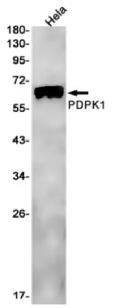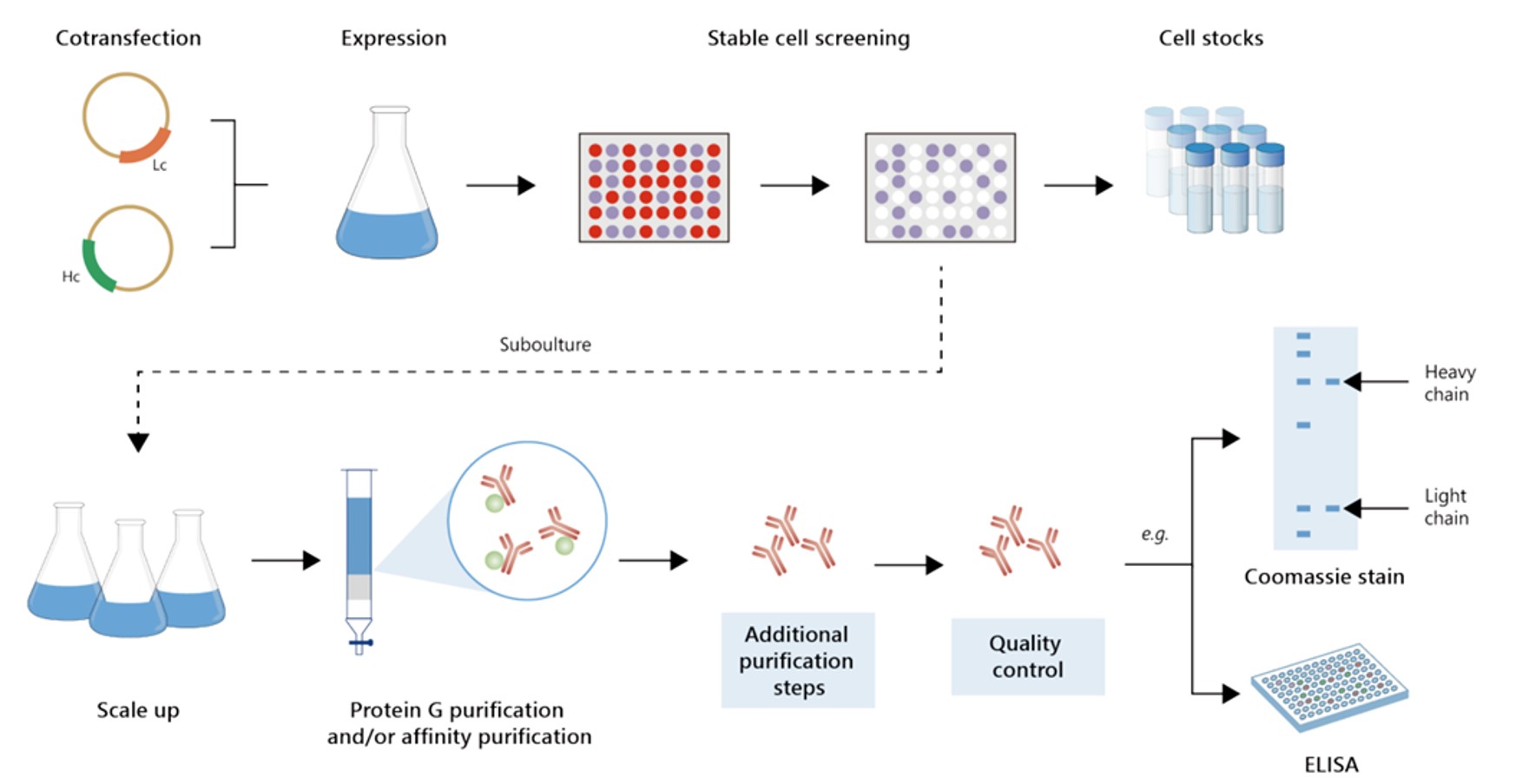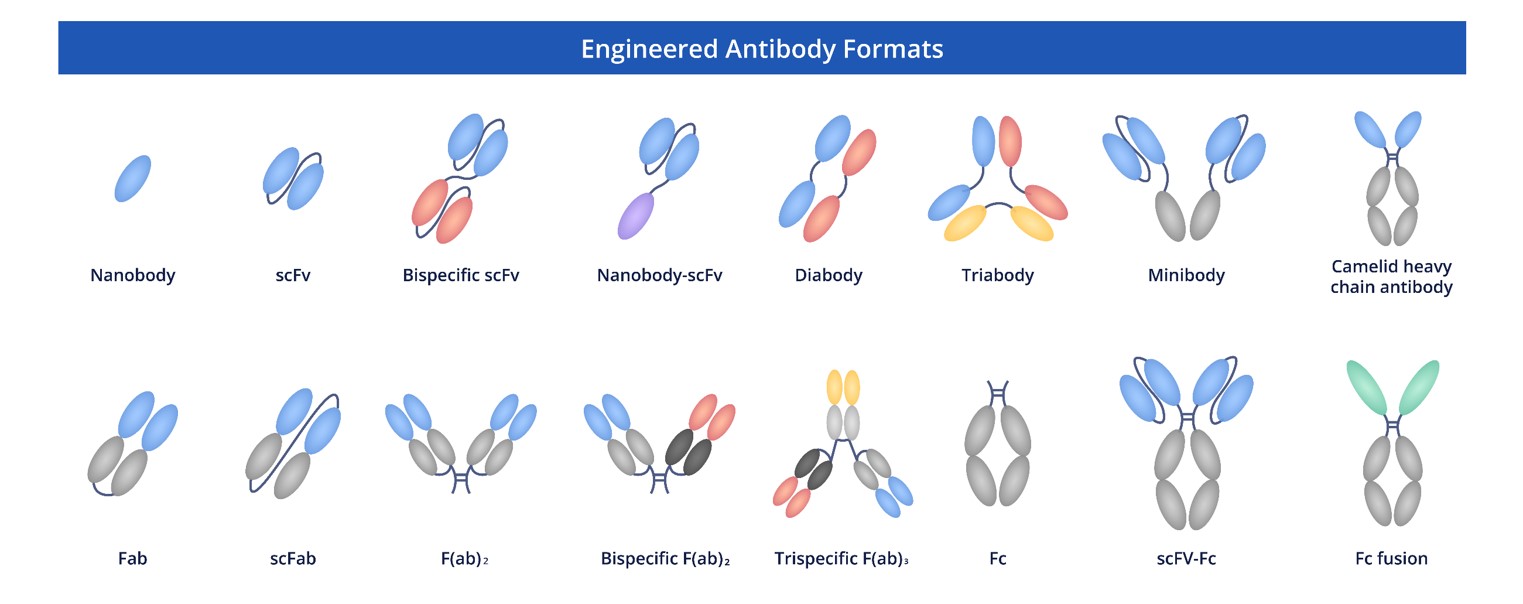 Loading...
Loading...

Anti-PDPK1 Recombinant Antibody Products
 Loading...
Loading...Anti-PDPK1 Products
-
- Species Reactivity: Human, Mouse, Rat
- Type: Rabbit IgG
- Application: WB, IF, IHC
-
- Derivation: Mouse
- Species Reactivity: Human, Mouse, Monkey, Rat
- Type: Mouse IgG1
- Application: WB, ICC, IHC, FC
-
- Species Reactivity: Human, Mouse, Rat
- Type: Rabbit IgG
- Application: WB, ICC, IF, IHC
- Mouse Anti-PDPK1 Recombinant Antibody (clone 3B11H2) (VS3-XY1234)
-
- Species Reactivity: Human
- Type: Mouse IgG1
- Application: ELISA, WB, FC, ICC
- Mouse Anti-PDPK1 Recombinant Antibody (clone 3H6) (VS3-XY1235)
-
- Species Reactivity: Human
- Type: Mouse IgG1
- Application: ELISA, WB, FC, ICC, IHC
-
- Species Reactivity: Human, Mouse, Rat
- Type: Rabbit IgG
- Application: WB
-
- Derivation: Mouse
- Species Reactivity: Human
- Type: Mouse IgG1
- Application: WB, ELISA, FC, IF, IHC
- Mouse Anti-NHP PDPK1 Recombinant Antibody (clone 7E4G11) (VS-1024-XY376)
-
- Species Reactivity: Human, Mouse, Non-human primate, Rat
- Type: Mouse IgG1
- Application: WB, IHC, FC, ELISA
- Mouse Anti-PDPK1 Recombinant Antibody (clone 7E4G11) (VS7-0425-WR591)
-
- Species Reactivity: Human, Mouse, Monkey, Rat
- Type: Mouse IgG1
- Application: WB, IHC, ICC, FC
- Mouse Anti-PDPK1 Recombinant Antibody (clone 3H3D9) (VS7-0425-WR592)
-
- Species Reactivity: Human
- Type: Mouse IgG1
- Application: WB, ICC, FC
- Anti-PDPK1 Immunohistochemistry Kit (VS-0325-XY1612)
-
- Species Reactivity: Human, Mouse, Rat
- Target: PDPK1
- Application: IHC
-
- Derivation: Phage display library screening
- Species Reactivity: Human
- Type: IgG
- Application: WB, IP, IHC-P, ICC
Can't find the products you're looking for? Try to filter in the left sidebar.Filter By Tag
Our customer service representatives are available 24 hours a day, from Monday to Sunday. Contact Us
For Research Use Only. Not For Clinical Use.
Creative Biolabs offers premium recombinant antibodies against PDPK1, tailored to support cutting-edge biomedical research. Leveraging advanced technology platforms, we deliver products that consistently uphold rigorous quality and performance benchmarks. Our diverse antibody portfolio is crafted to provide researchers with dependable, high-impact tools for their experimental needs. Beyond product excellence, we're committed to offering expert technical guidance to ensure smooth and successful project execution. Partnering with Creative Biolabs means accessing innovative reagents backed by a team dedicated to your scientific progress.
PDPK1: A Crucial target in Autoimmune Disorders and Inflammatory Diseases
PDPK1, a master regulator of the PI3K/AKT/mTOR pathway, plays a pivotal role in multiple pathological conditions due to its central role in cellular signaling. In cancer, hyperactivation of this kinase promotes uncontrolled proliferation, survival, and metastasis by enhancing downstream oncogenic cascades, particularly in breast, prostate, and hematological malignancies, where it drives resistance to chemotherapy and targeted therapies. Beyond oncology, dysregulated activity contributes to metabolic disorders such as diabetes by impairing insulin signaling and glucose homeostasis. Additionally, aberrant function has been implicated in neurodegenerative diseases, where disrupted kinase signaling exacerbates neuronal apoptosis and synaptic dysfunction. In autoimmune disorders, excessive activation fuels inflammatory responses by modulating immune cell activation and cytokine production. Given its broad pathological influence, therapeutic targeting holds promise for treating diverse diseases, particularly in oncology, where selective inhibition may overcome drug resistance while sparing normal tissues.
Alternative Names
Complement 3-Phosphoinositide Dependent Protein Kinase 1; EC 2.7.11.1; PDK1; 3-Phosphoinositide-Dependent Protein Kinase 2 Pseudogene; 3-Phosphoinositide-Dependent Protein Kinase 1; PkB Kinase Like Gene 1; PkB Kinase
Background
Serine/threonine kinase which acts as a master kinase, phosphorylating and activating a subgroup of the AGC family of protein kinases. Its targets include: protein kinase B (PKB/AKT1, PKB/AKT2, PKB/AKT3), p70 ribosomal protein S6 kinase (RPS6KB1), p90 ribosomal protein S6 kinase (RPS6KA1, RPS6KA2 and RPS6KA3), cyclic AMP-dependent protein kinase (PRKACA), protein kinase C (PRKCD and PRKCZ), serum and glucocorticoid-inducible kinase (SGK1, SGK2 and SGK3), p21-activated kinase-1 (PAK1), protein kinase PKN (PKN1 and PKN2). Plays a central role in the transduction of signals from insulin by providing the activating phosphorylation to PKB/AKT1, thus propagating the signal to downstream targets controlling cell proliferation and survival, as well as glucose and amino acid uptake and storage. Negatively regulates the TGF-beta-induced signaling by: modulating the association of SMAD3 and SMAD7 with TGF-beta receptor, phosphorylating SMAD2, SMAD3, SMAD4 and SMAD7, preventing the nuclear translocation of SMAD3 and SMAD4 and the translocation of SMAD7 from the nucleus to the cytoplasm in response to TGF-beta. Activates PPARG transcriptional activity and promotes adipocyte differentiation. Activates the NF-kappa-B pathway via phosphorylation of IKKB. The tyrosine phosphorylated form is crucial for the regulation of focal adhesions by angiotensin II. Controls proliferation, survival, and growth of developing pancreatic cells. Participates in the regulation of Ca(2+) entry and Ca(2+)-activated K(+) channels of mast cells. Essential for the motility of vascular endothelial cells (ECs) and is involved in the regulation of their chemotaxis. Plays a critical role in cardiac homeostasis by serving as a dual effector for cell survival and beta-adrenergic response. Plays an important role during thymocyte development by regulating the expression of key nutrient receptors on the surface of pre-T cells and mediating Notch-induced cell growth and proliferative responses. Provides negative feedback inhibition to toll-like receptor-mediated NF-kappa-B activation in macrophages. Isoform 3 is catalytically inactive.
Enzymes, Metabolic proteins, Plasma proteins
Intracellular
Low cell type specificity
Low immune cell specificity
Low cell line specificity
Homodimer in its autoinhibited state. Active as monomer. Interacts with NPRL2, PPARG, PAK1, PTK2B, GRB14, PKN1 (via C-terminus), STRAP and IKKB. The Tyr-9 phosphorylated form interacts with SRC, RASA1 and CRK (via their SH2 domains). Interacts with SGK3 in a phosphorylation-dependent manner. The tyrosine-phosphorylated form interacts with PTPN6. The Ser-241 phosphorylated form interacts with YWHAH and YWHAQ. Binds INSR in response to insulin. Interacts (via PH domain) with SMAD3, SMAD4 and SMAD7. Interacts with PKN2; the interaction stimulates PDPK1 autophosphorylation, its PI(3,4,5)P3-dependent kinase activity toward 'Ser-473' of AKT1 but also activates its kinase activity toward PRKCD and PRKCZ.
Activator, Kinase, Serine/threonine-protein kinase, Transferase
Anti-PDPK1 rAb Products
Our commitment to accelerating research and discovery is demonstrated through the provision of high-quality anti-PDPK1 recombinant antibody products, offering exceptional value alongside superior technical support.
Table 1. Featured anti-PDPK1 recombinant antibody products at Creative Biolabs.
| Cat. No. | Product Name | Target Species | Host Species | Applications |
| MRO-1201-CN | Recombinant Rabbit Anti-PDPK1 Monoclonal Antibody (CBACN-440) | Human; Mouse; Rat | Rabbit | WB; IF; IHC |
| VS3-WK113 | Mouse Anti-PDPK1 Recombinant Antibody (clone G11-E4) | Human; Mouse; Monkey; Rat | Mouse | WB; ICC; IHC; FC |
| MOB-2837z | Mouse Anti-PDPK1 Recombinant Antibody (clone 29H1) | Human | Mouse | WB; ELISA; FC; IF; IHC |
| VS3-FY1121 | Recombinant Rabbit Anti-PDPK1 Antibody (clone R03-7H6) | Human; Mouse; Rat | Rabbit | WB |
| VS7-0425-WR592 | Mouse Anti-PDPK1 Recombinant Antibody (clone 3H3D9) | Human | Mouse | WB; ICC; FC |
Creative Quality Control
To support the advancement of biopharmaceutical R&D through to market launch, we adhere to a customer-centric philosophy that prioritizes exceptional product quality. A robust quality assurance system is firmly established to maintain high standards across our offerings. By consistently aligning with — and often exceeding — client expectations, we strive to streamline the drug development process and reduce time to market.
 Fig.1 WB analysis of anti-PDPK1 antibody (Cat# VS3-FY1121, Creative Biolabs).
Fig.1 WB analysis of anti-PDPK1 antibody (Cat# VS3-FY1121, Creative Biolabs).
Customer Reviews

Recombinant Rabbit Anti-PDPK1 Antibody (clone R03-7H6) (CAT#: VS3-FY1121)

Recombinant Rabbit Anti-PDPK1 Monoclonal Antibody (CBACN-440) (CAT#: MRO-1201-CN)

Mouse Anti-PDPK1 Recombinant Antibody (clone 29H1) (CAT#: MOB-2837z)
rAb Production
We have developed extensive expertise over the years in recombinant antibody production and optimization. Through our exceptional service, we deliver recombinant antibody products of superior quality and reliability within the shortest timeframe.
Featured Anti-PDPK1 Recombinant Antibody Production Platforms
Fig.2 Milligram-scale recombinant antibody production.
 Fig.3 Gram-scale recombinant antibody production.
Fig.3 Gram-scale recombinant antibody production.
rAb Modalities
Creative Biolabs is committed to providing researchers with the broadest and most advanced high-quality recombinant antibodies in diverse formats. Our expertise in recombinant antibodies spans various engineering methodologies, and our products are supported by exceptional custom engineering services designed to meet your specific requirements.
 Fig.4 Full Length Anti-PDPK1 Recombinant Antibody Production and Modalities.
Fig.4 Full Length Anti-PDPK1 Recombinant Antibody Production and Modalities.
For further details on PDPK1, please don't hesitate to contact our technical support team by phone or email. We're happy to provide guidance and troubleshooting assistance to help optimize your experimental workflow and achieve reliable results. Let us know how we can support your research.


 Insulin Signaling Pathway
Insulin Signaling Pathway

